
Trump Threatens More Tariffs on China, New Tariffs on Mexico, Canada
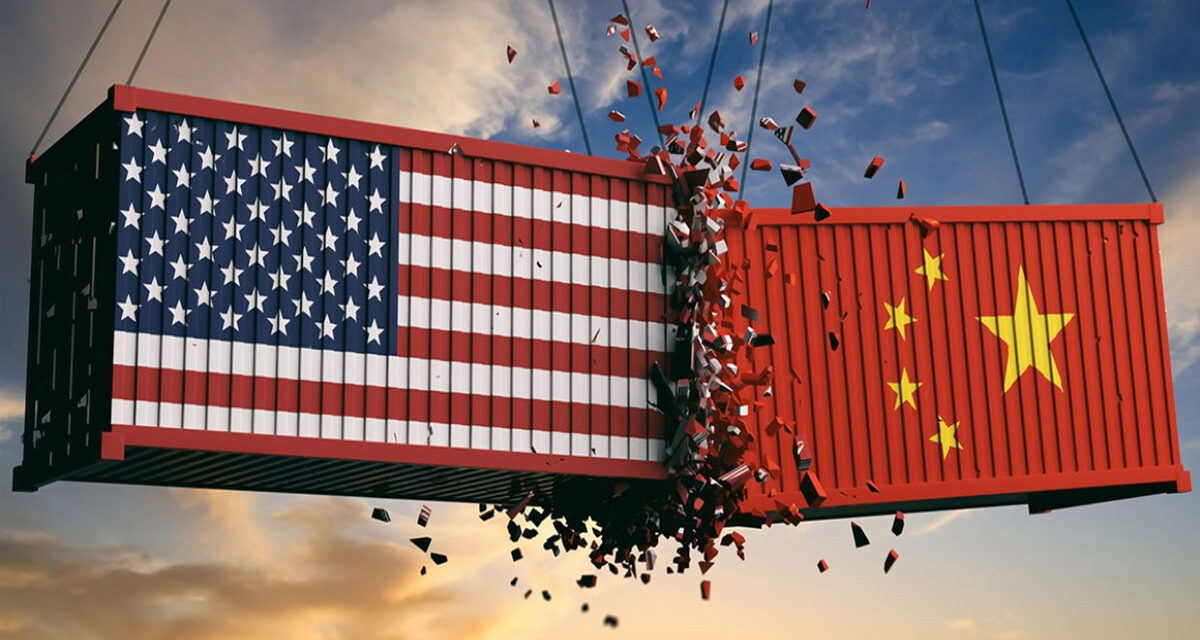
President-elect Donald Trump has announced plans to impose substantial tariffs on imports from Mexico, Canada, and China. These measures, set to take effect on his first day in office, reflect his determination to address what he sees as decades of economic and security neglect.
Far from being impulsive or reckless, Trump’s tariff threats appear to be a calculated negotiating tactic aimed at achieving critical goals: curbing illegal immigration, stopping the flow of fentanyl into the United States, and rebalancing trade relationships that he argues have long disadvantaged American workers and industries.
Trump knows how to wield power. Despite the panic expressed in the liberal mainstream media, Trump’s seemingly extreme announcement is designed to establish America in the best negotiating position, starting with an intolerable situation, and allowing himself to be pulled along with concessions from our trading partners. His expertise in negotiations is evident.
Trump’s declaration is not just a warning; it is a statement of intent. He has made it clear that America’s trading partners must act swiftly to address these issues or face significant economic consequences. “Both Mexico and Canada have the absolute right and power to easily solve this long-simmering problem,” Trump stated on Truth Social. “We hereby demand that they use this power, and until such time that they do, it is time for them to pay a very big price!”
The Tariff Plan
Trump’s proposal outlines specific tariffs targeting America’s top trading partners:
- 25% Tariff on All Goods from Mexico and Canada: These tariffs, Trump asserts, will remain in place “until such time as drugs, in particular fentanyl, and all illegal aliens stop this invasion of our country!”
- 10% Additional Tariff on Chinese Goods: This measure, added to existing tariffs, is a response to what Trump calls China’s failure to address its role in fentanyl production and distribution.
These tariffs are designed to pressure foreign governments to take immediate and decisive action on issues Trump considers urgent, from immigration enforcement to the regulation of drug trafficking.
A History of Unfair Trade
Trump has consistently argued that the United States has been exploited by its trading partners for decades. During his first term, he criticized the North American Free Trade Agreement (NAFTA) as “the worst trade deal ever made” and renegotiated it into the U.S.-Mexico-Canada Agreement (USMCA). While USMCA addressed some of Trump’s concerns, he now seeks further reforms to incorporate security and drug enforcement measures.
Regarding China, Trump pointed to failed promises made during past negotiations, particularly concerning fentanyl. “I have had many talks with China about the massive amounts of drugs, in particular fentanyl, being sent into the United States,” Trump wrote, adding that Chinese representatives assured him they would implement harsh penalties for drug traffickers. “Unfortunately, they never followed through, and drugs are pouring into our country, mostly through Mexico, at levels never seen before.”
Trump’s frustration with these unfulfilled commitments underpins his decision to levy additional tariffs on Chinese goods.
A Negotiator’s Approach
To Trump’s supporters, these tariffs are not merely punitive—they are tools to achieve leverage. Trump’s reputation as a skilled negotiator is central to how his tariff threats are viewed. Michael Hart, president of the American Chamber of Commerce in China, suggested the move was strategic. “A lot of people expect Trump to be a negotiator, so I think this is a beginning of discussions or beginning of negotiations,” he said during a recent conference.
By threatening economic penalties, Trump aims to force concessions from trading partners that traditional diplomacy has failed to secure. His strategy aligns with his broader “America First” philosophy, which prioritizes U.S. interests in global dealings.
Reactions at Home and Abroad
International reactions to Trump’s announcement have been swift and varied. In Canada, officials emphasized their close economic ties with the United States, noting that Canada is America’s largest trading partner and the source of 60% of its imported oil. “Canada places the highest priority on border security and the integrity of our shared border,” Deputy Prime Minister Chrystia Freeland said.
Mexico’s government has yet to issue an official response, but experts predict significant pushback. “If Trump carries out his tariff threat, Mexico should retaliate,” said Ildefonso Guajardo, Mexico’s former economy minister. In the past, Mexico has imposed tariffs on U.S. exports like pork, cheese, and apples in response to similar threats.
China, meanwhile, struck a more conciliatory tone. Its embassy in Washington called U.S.-China trade “mutually beneficial” and stressed ongoing efforts to combat fentanyl trafficking. However, Chinese officials also warned that “no one will win a trade war or a tariff war.”
Economic Implications
The proposed tariffs could have far-reaching economic consequences. Mexico and Canada account for nearly 30% of U.S. trade, supplying critical goods like automobiles, steel, and aluminum. Disrupting this trade with tariffs could drive up prices for American consumers. For instance, U.S. automakers rely heavily on parts manufactured in Mexico, which often cross the border multiple times during production. A tariff on these goods would likely increase the cost of vehicles sold in the U.S.
Similarly, the 10% additional tariff on Chinese goods could further strain global supply chains. Many Chinese products are already subject to tariffs averaging 15% from the initial trade war during Trump’s first term. Adding to these costs could make goods like electronics and household items significantly more expensive for American consumers.
But while it may cause some hardship in the United States, it will cause much greater problems in China, Canada and Mexico if they go through.
Despite the potential economic disruptions, Trump’s supporters see him as a leader willing to take bold steps to protect America’s interests. They argue that these tariffs will force trading partners to act responsibly, create domestic jobs, and strengthen U.S. industries. “Other countries are going to finally, after 75 years, pay us back for all that we’ve done for the world,” Trump declared during a presidential debate.
To his critics, however, these measures are reckless and could lead to inflation, job losses, and strained diplomatic relationships. Yet Trump remains undeterred, confident that his approach will yield results, just as it did during his first term.
Trump’s tariff threats mark the beginning of what could be a transformative period for U.S. trade policy. By tying economic penalties to immigration and drug enforcement, Trump is reshaping the conversation around trade to include national security.
ACZ Editor: As stated in the article, this is designed to bring our trading partners to the table. Trump has done this many times, with good results in almost every case. China’s tariffs may go through, but it is doubtfull that Mexico and Canada will end up with 25%.


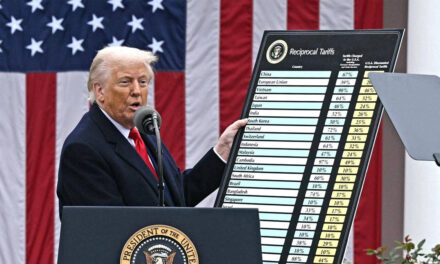
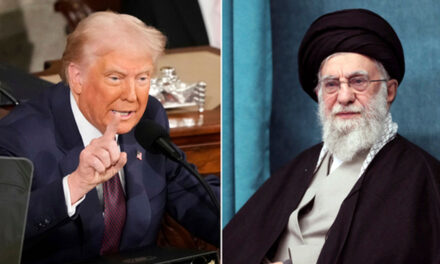




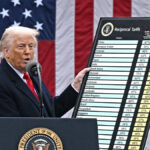
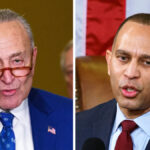











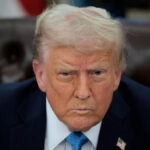

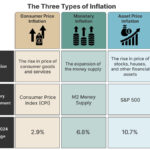




This really illustrates how clueless Trump really is. Does he really think government has any control over the exporting of drugs into the United States? It’s all done by cartels which in Mexico’s case are more powerful than the government. So he is going to punish American consumers in the hope that this will somehow stop the flow of drugs those same Americans are demanding.
Did it ever occur to him to maybe work on reducing the demand for these drugs?
Or is that too complicated for him?
Trusting Trump happens to be a fool’s errand. Leaders of both Mexico and Canada this week again were reminded of Trumps lack of truthfulness in negotiations about tariffs and boarder security. In Mexico’s case Trump reported his side of the conversation and Madam President of Mexico reporting her side of the conversation. That the two accounts were 180 degree opposites is no surprise given that Trump has the habit of fabricating falsehoods. Listening to both participants speaking separately it’s as if the two were not in the same room at the time. Maybe Trump’s memory failed and caused him to not have full recall of what she did not agree to.
If Trump is the master negotiator and his talks with neighboring nations and major trade partners even before he’s in office induce to lie and to get caught in a that lie, then that’s a foretelling of the negotiations Trump will have with Putin on his war against Ukraine.
NATO has invested billions in Ukraine’s defenses and Ukraine’s military to personnel has seen to many of its own being wounded and more giving the ultimate sacrifice of their life. America and NATO would be putting all its negotiating eggs in one small and unsafe bushel basket. And, Trump is that basket case that can’t be trusted with bringing an end to this war that does not throw Putin both the baby and its bathwater. Putin will not be satisfied with just the baby with its bathwater. He will demand that the infant’s mother and father be handed over as well.
Trump in his last term gave up our CIA along with secrets essential for national defense to Putin. And in return that time Putin naturally lied when he disavowed his nation’s interference in the American Elections.
Intelligence sources have discovered evidence that proves Russia was involved by means of cyber espionage and robo advertising propaganda campaigns.
Trump has stated that he trusts Putin, therefore Trump believes that Putin’s war will end within his first 24 hours as President,
Now, that’s a whopper of a fish story, a.k.a, lie.
Which leaves no doubt that his mental state is not founded in reality. All his mental wheels are not on the pavement and rolling in the same direction.
Barely 1/2 of the last election’s popular vote went to Trump. So, this country’s citizenry is half-crazies and not totally populated with nutball types
If it takes being nuts in the head for someone to vote for a nutcase in a presidential election, then out country at this time is half nut crazy.
This is the only reasonable answer to the Big Question going around the world.
Sane persons are rational critical thinkers woke up on day after the Day and felt appalled by the outcome and embarrassed for how America and our democracy failed the world.
when IS THE WHOLE WORLD GOING TO WAKE UP TO THE FACT THAT WE CAN’T KEEP LETTING ALL BAD GUY COUNTRIES TAKE OVER LAND BY FIGHTING FOR MORE LAND TO INCREASING THEIR COUNTRIES` THEIR OWN LAND HOLDING. THATS IS EVIL, BY MURDERING THE INNOCENT PEOPLE OF UKRAIN, JUST BECAUSE PUTIN OF RUSSIA, WAN’T TO INCREASE RUSSIALANDS. THIS IS AGAINST THE LAW. ITS INHUMAN ! ! JERRY RICH